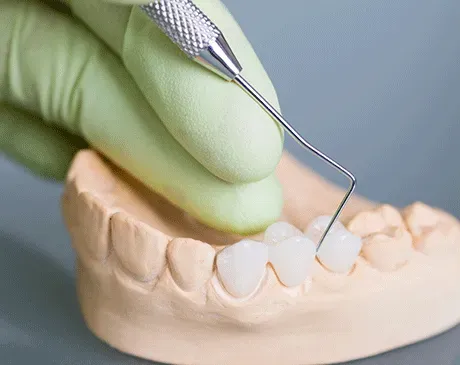When it comes to restoring damaged or missing teeth, Dental Crowns & Bridges are two of the most popular treatments offered by dentists. Both of these procedures provide excellent solutions for improving your smile and restoring functionality to your teeth. While they serve similar purposes, there are significant differences between crowns and bridges. Understanding these distinctions will help you make an informed decision about which treatment is best suited for your oral health needs. In this article, we will explore how Dental Crowns & Bridges compare, shedding light on their unique benefits, applications, and treatment processes. If you're considering improving your smile, Dental Crowns & Bridges in Dubai are highly recommended options.
What Are Dental Crowns?
A dental crown is essentially a cap placed over a damaged tooth. It is designed to restore the tooth’s shape, size, and strength, making it functional again. Crowns are commonly used when a tooth is severely worn down, fractured, or weakened by a large filling. The crown fully encases the tooth, protecting it from further damage while improving its appearance. The process of getting a dental crown typically involves two visits: one to prepare the tooth and another to place the permanent crown.
Benefits of Dental Crowns
Dental crowns offer numerous advantages, including:
- Restoration of Tooth Functionality: Crowns help restore the ability to chew and speak properly.
- Enhanced Aesthetic Appeal: Crowns improve the look of damaged teeth, making them appear more natural and uniform.
- Durability: Crowns are designed to withstand chewing forces, making them long-lasting with proper care.
What Are Dental Bridges?
A dental bridge is a device used to replace one or more missing teeth. The bridge consists of artificial teeth, known as pontics, which are anchored in place by crowns on adjacent teeth. The surrounding teeth act as supports for the bridge, filling the gap left by missing teeth. Dental bridges are ideal for patients who have one or more teeth missing but have healthy teeth on either side of the gap. The procedure for getting a dental bridge is similar to crowns, usually involving two visits for preparation and placement.
Benefits of Dental Bridges
The benefits of dental bridges include:
- Prevention of Teeth Shifting: Bridges prevent surrounding teeth from shifting into the empty space left by a missing tooth, which can cause bite problems.
- Restoration of Functionality: Like crowns, bridges allow patients to eat, speak, and smile confidently.
- Natural Look and Feel: Bridges are custom-made to match the natural color and shape of your teeth.
Dental Crowns vs. Bridges: Key Differences
While both dental crowns and bridges are designed to improve the functionality and aesthetics of your smile, they differ in their application and use:
- Dental Crowns are used to cover and protect a single damaged or weakened tooth, whereas Dental Bridges are used to fill gaps caused by one or more missing teeth.
- Crowns are ideal for individual teeth that need restoration, while Bridges are the best solution for replacing several missing teeth at once.
- Crowns require a healthy tooth structure for placement, whereas Bridges rely on adjacent teeth for support.
FAQs About Dental Crowns & Bridges
What is the main difference between dental crowns and bridges?
Dental crowns are used to cover and restore individual damaged teeth, while dental bridges are used to replace one or more missing teeth by bridging the gap with artificial teeth.
How long do dental crowns last?
Dental crowns can last between 10 to 15 years or longer with proper care, depending on the materials used and the patient's oral hygiene habits.
Can I get a dental bridge if I have no adjacent teeth?
In cases where there are no adjacent teeth, alternative solutions such as dental implants may be considered to support the bridge.
Are dental crowns and bridges painful?
The procedures for both dental crowns and bridges are typically pain-free, as local anesthesia is used during treatment. Any discomfort during recovery is usually minimal.
How do I take care of dental crowns and bridges?
Proper care for crowns and bridges includes regular brushing, flossing, and routine dental checkups to ensure their longevity.
Conclusion
Both Dental Crowns & Bridges offer excellent restorative solutions for those needing dental care. Crowns are ideal for strengthening and restoring damaged teeth, while bridges are the perfect choice for replacing missing teeth. Consulting with your dentist will help determine which treatment is best for your specific dental needs.





Comments